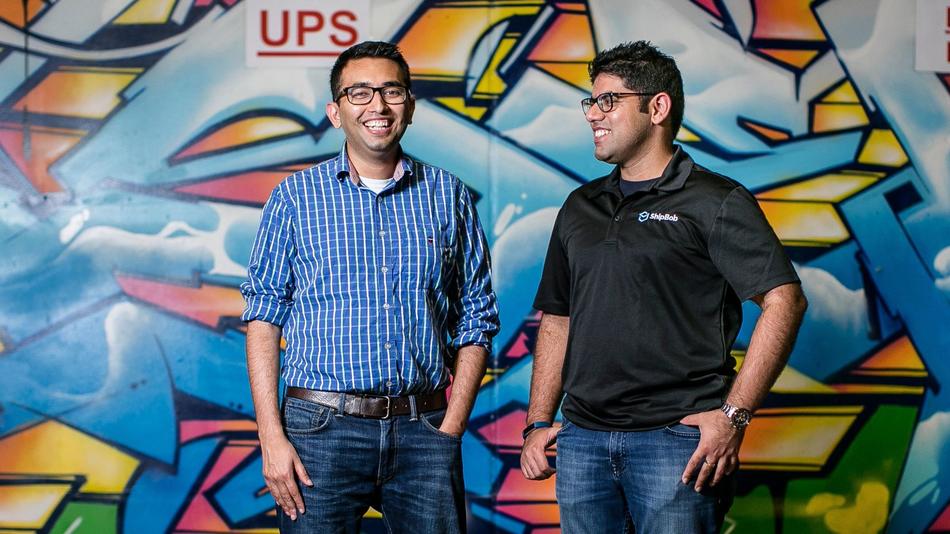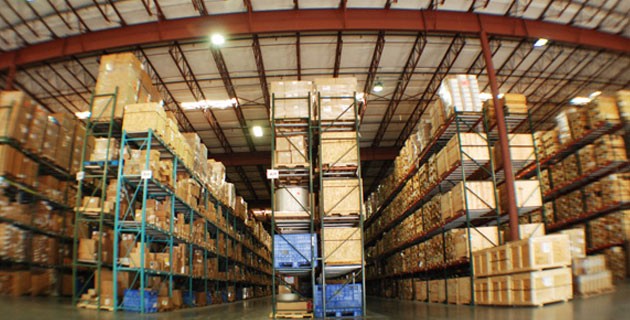Today, given the booming demand for online shopping, the delivery time of an order often clinches the sale. But behind the scenes, small and mid-sized enterprises (SMEs) are already breathless while juggling their focus between aspects like innovation, investments, and marketing. If you were to add order delivery management to this mix, things can get quite overwhelming. Chicago-based ShipBob helps companies offload shipping logistics hassles such as inventory, order picking, packaging, labelling, shipping, and package tracking with its third-party logistics (3PL) services. Understanding the importance of swift delivery, but realizing that SMEs lack necessary infrastructure and capital, ShipBob offers highly-optimized order fulfilment at speeds (2-day delivery) similar to Amazon.com regular (non-Prime) shipping timelines.
In September 2018, the startup announced $40M in new investments, bringing the total raised to more than $62M. This Series C funding was led by Menlo Ventures, along with participation from existing investors Bain Capital Ventures, Hyde Park Venture Partners, Hyde Park Angels, and Y Combinator. ShipBob’s co-founder and chief executive Dhruv Saxena declared that the new funding would be used for expanding their fulfilment center network, growing their team, and advancing their software technology.
Coincidentally, September also saw the opening of a new fulfilment warehouse in Cicero, with six times the storage capacity of the prior Chicago warehouse. The startup plans to use the funding to hire 60-100 people in the Chicago area in the next year, and also double the software engineering team.
ShipBob – from an online store to the shopper’s door
ShipBob is the brainchild of co-founders Dhruv Saxena and Divey Gulati, childhood friends from New Delhi, India. The idea hit them while running their previous e-commerce business SnailMailPics. After spending time manually preparing and mailing packages, they realized that shipping was the most time-consuming process of the online transaction cycle. Additionally, a study by DHL group had predicted the need for convenience logistics in the shipping and logistics industry in the years ahead. Sensing the business opportunity, Saxena and Gulati founded ShipBob in September 2014, with assistance from Jivko Bojinov, Gulati’s associate from the University of Illinois at Urbana-Champaign.
It started with Chicago; now Shipbob delivers across the US
The e-commerce fulfilment startup which started out servicing just the Chicago area, now ships across the US. It also helps that Shipbob has a wide network of fulfilment centers located in Chicago, Dallas, Los Angeles, New York, and San Francisco. For those unfamiliar with the term, a fulfilment centre is not merely a storehouse for a merchant’s products but also structured to efficiently meet customer expectations (of prompt delivery) around shipping.
Shipbob has built proprietary tools that offer complete control over inventory, orders, and shipments (receiving, processing, packing, picking). Their software can also be integrated with all major e-commerce platforms, such as Shopify, Amazon, and WooCommerce.
The average Shipbob fulfilment process starts with new clients stocking their products at Shipbob’s fulfilment centers, based on expected shipping demand and locations. Once the e-commerce client integrates their portal to ShipBob’s software, orders are seamlessly imported, and items are picked, packed and shipped to the end-customer. The technology compares shipping prices between carrier partners, so orders can be filled quickly using the cheapest shipping option. Tracking information is then sent to the clients’ websites and discreet packaging ensures that ShipBob’s brand is hidden from their customers. The 3PL’s proprietary software also automates inventory management, notifying a client of when to restock a particular fulfilment center.
In its effort to go the extra mile and achieve client satisfaction, Shipbob leverages leading-edge technology. For instance, workers in the fulfilment centers wear iPod Touch devices on their wrists and scanners on their fingers which tells them the right product to pull out. In fact, the fulfilment center in suburban Monee features fleets of robots that are being utilized to allow workers to process more orders.
The rise of e-commerce and the cost of fulfilment
As the crowd of online shoppers grows, so does the market for e-commerce fulfilment. Gone are the days when the only names in the market were those of renowned tech giants such as Amazon FBA (known for its high storage costs). The surge of new players in recent years translates to more options for e-tailers to help manage their logistics. However, with great options comes great confusion. It can be tricky for e-commerce businesses to choose the best-suited fulfilment service, for they must foresee factors like product volume, shipping locations, prices, and speed.
ShipBob is known to provide small businesses with high-quality fulfilment service at affordable rates. On the other hand, 3PL company Red Stag is recommended for oversized products, as well as high-value or fragile goods. 3PLs like Whiplash and ShipMonk are noted for their strong logistics and flexible infrastructure. For businesses prioritizing high-speed shipping, Ships-A-Lot guarantees shipping lead time of 24 hours or less. If they fall short of the speed guarantee on an order, they’ll pay clients (SMEs) $20.
Cost of fulfilment is often a business’s priority, so it is imperative to look beyond just shipping costs. What may seem like the most cost-savvy 3PL option at first glance might not factor in other expenses—both direct and indirect. Some of the costs to look out for are onboarding, inventory receiving, storage, and packaging. ShipBob claims to offer quick onboarding, charges no onboarding fees, and a flat $35 fee for the first two hours of receiving and storing inventory. It charges for warehousing on a per-shelf, bin, and pallet basis, so SMEs only pay for the space they use on a monthly basis. Furthermore, costs are saved for every order by comparing shipping costs between their partner carriers (such as DHL, USPS, UPS) and choosing the cheapest.
Like ShipBob, several 3PL companies are investing in the future of e-commerce fulfilment. In September 2018, Las Vegas-based Rakuten Super Logistics announced the opening of two additional fulfilment centers in New Jersey and Chicago. FedEx has stepped up its services targeting small and medium-sized e-commerce retailers with the launch of FedEx Fulfillment this year. United Parcel Service Inc. launched its Ware2Go service, a digital platform that matches businesses with available warehouses to help streamline online orders.
Competition is increasingly fierce, but case studies of delighted customers may be an indication of a 3PL company’s firm footing in the future. “ShipBob offered us the best solution and was tailored toward our needs as an early startup business on its way to growing”, says Tamarin Oblowitz, co-founder of Baja Bae, an Australian lotion company.
Today, 2,000+ internet retailers use ShipBob to run their supply chain operations. With more than four million packages shipped to-date, the progress made since 2014 to offer faster, more affordable shipping to online shoppers across the United States is laudable. Their plan, according to a company blog post, is to continue increasing its reach by setting up larger facilities in urban areas, based on shipping demand. “We are moving fast — but we’re nowhere near finished”, says Saxena.
Subscribe to our newsletter





